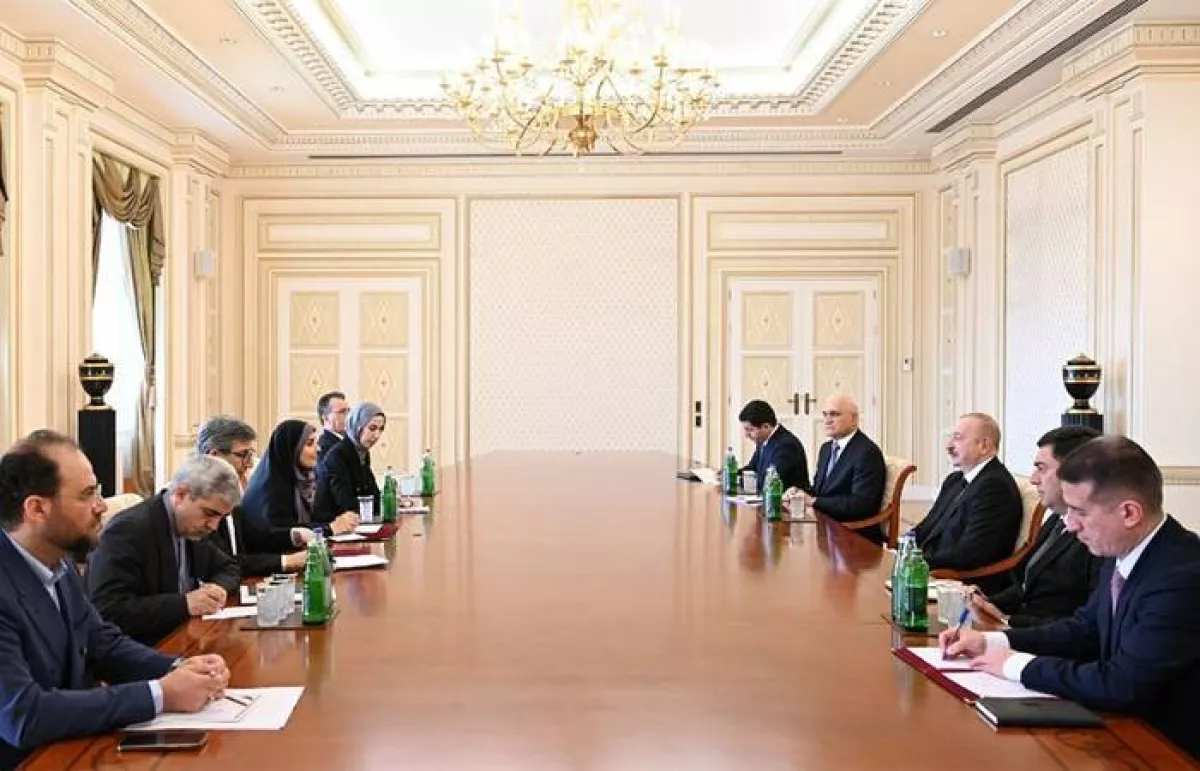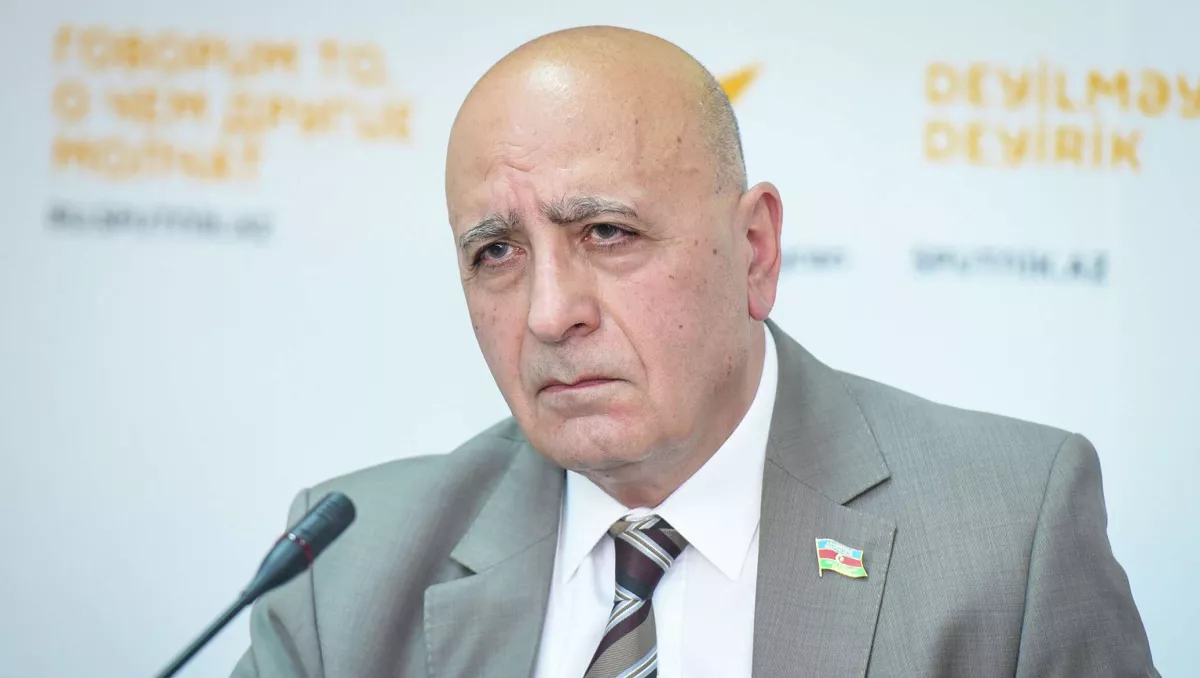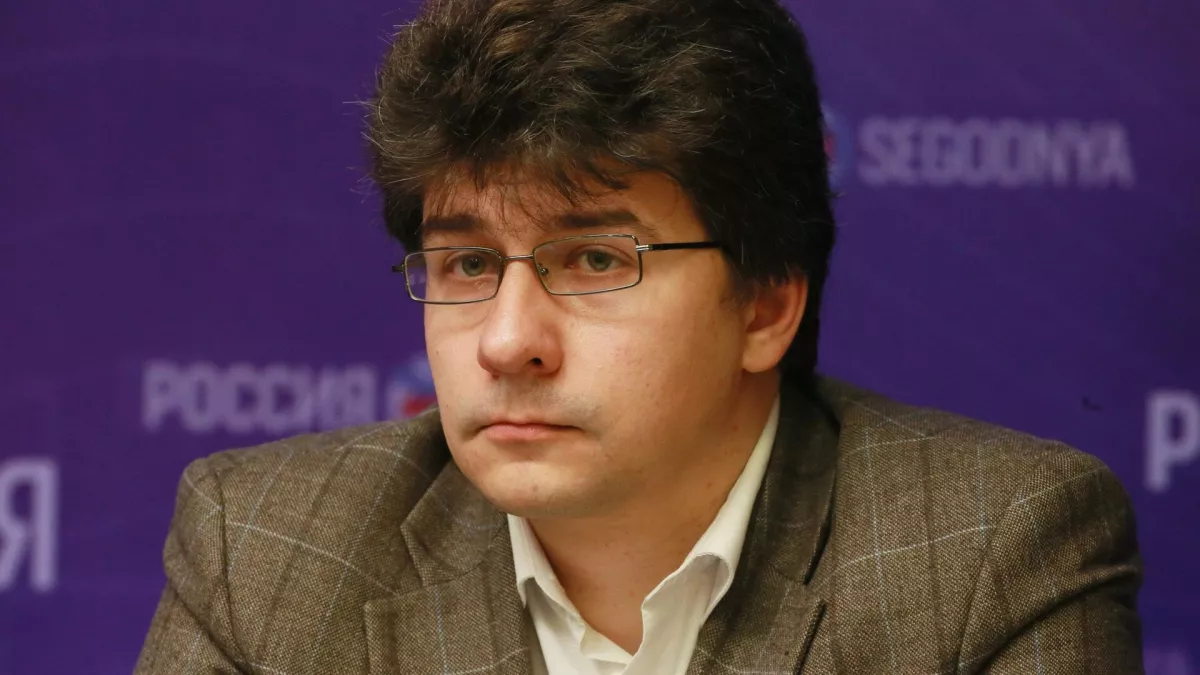Iran-Azerbaijan transport projects to push Armenia into action Experts highlight significance of Baku-Iran talks
Iran’s Minister of Roads and Urban Development, Co-Chair of the Iran-Azerbaijan Intergovernmental Commission, Farzaneh Sadegh, visited Azerbaijan.
During the meeting, Azerbaijani President Ilham Aliyev emphasized that the recent high-level visits by delegations from both Azerbaijan and Iran open up significant opportunities to strengthen friendly ties between the two countries and further develop bilateral cooperation.

This latest visit by the Iranian minister confirms that Baku and Tehran continue active cooperation in the development of communications, despite dissatisfaction from Yerevan. While the Armenian side continues to hinder the opening of the Zangezur Corridor, Azerbaijan and Iran are working on creating an alternative corridor.
Caliber.Az correspondent sought an assessment of the situation from experts on the South Caucasus region.

Member of the Milli Majlis, political analyst Rasim Musabayov views the visit of Iran’s Minister of Roads and Urban Development to Azerbaijan as a preparatory stage for President Pezehshkian’s upcoming visit to Azerbaijan.
"Iran's president certainly understands that the main issue for Azerbaijan is transport transit. While President Pezehshkian will likely have a wide range of topics to discuss, transport communication is our priority.
It is crucial for us to complete the construction of two road bridges: Aghband–Kalala and Siyahrud–Ordubad. The implementation of these projects will significantly shorten the route from Nakhchivan to the main part of Azerbaijan through Iran, from several hours to about one hour. The Iranian side previously promised to resolve this issue, and we expect it to be discussed during the visit. It is difficult to say what the current status of these projects is, but their completion is of utmost importance.
Furthermore, we intend to discuss with Iran the project for a railway line from Julfa to Aghband. This will establish a rail link through Iran, thus making us less dependent on Armenia’s position. We do not want to wait for Armenia to come to its senses and restore the railway through Meghri. This issue is something Baku and Tehran aim to discuss and resolve in concrete terms.
The very fact that the Minister of Roads and Urban Development discussed railway construction issues within Iran’s territory will prompt the Armenian side to take action. Perhaps this will encourage them to stop delaying the restoration of the railway through Meghri and start moving forward. If we implement this project with Iran, Armenia will eventually have to repeatedly request the opening of communications — but to no avail. In the end, they risk finding themselves stuck in a transport deadlock," emphasized Musabayov.

South Caucasus expert Konstantin Tasic believes that the topic of transport corridors is one of the key issues in the relationship between Azerbaijan and Iran. It has traditionally been at the center of attention for the leadership of both countries, as improving transport links promotes the growth of mutual trade and investments.
"The most important project here is perhaps the development of the North-South Transport Corridor (NSTC), which will allow Tehran, through Azerbaijan, to access the Black Sea ports of Georgia, the Russian market, and, through Russian territory, the markets of Northern Europe. Azerbaijan, in turn, will improve its connections with Iran, gaining access to the southern ports of the Islamic Republic, India, and countries in South Asia.
Another major project is the creation of the 'Araz' transport corridor, which will connect the main part of Azerbaijan with Nakhchivan along the Iranian coast of the Araz River. Practical work on the construction of bridges and border crossings is already well underway.
Russia has consistently advocated for the opening of all transport communications in the South Caucasus. Moscow is interested in gaining new transit routes to the markets of friendly countries in the Global South. Additionally, unlocking these routes will not only realize the region's economic potential but also help foster increased trust, interdependence, and contribute to the normalization of relations between different countries, strengthening the foundation for a peaceful future.
Of course, creating effective and competitive routes requires even more work: reducing administrative barriers, expanding infrastructure bottlenecks, and harmonizing communication functioning regimes. Gradually, all these issues are being addressed. The meetings of the two countries' leaders are meant to set this process in motion," concluded Tasic.








